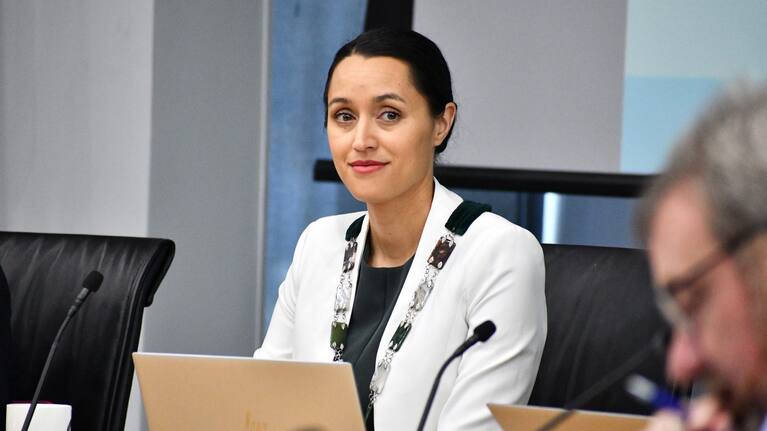An email from the Housing and Urban Development Ministry landed on Carolyne Hall's desk on Tuesday afternoon explaining its decision to seek an extension for a period of two years to continue operating emergency motels in Rotorua.
"We just could not believe that this was happening, or the repeat was happening again, after all the promises that were made to us in the city and this community," she said.
The Restore Rotorua deputy chairperson said multiple politicians been to Rotorua that she claimed had given them a "guarantee" that within two years there would no longer be any contracted emergency housing in the city.
"Betrayed, and kicked in the guts."
Read more: Undercover report: Rotorua's emergency housing crisis exposed
Hall told 1News 4000 submissions were received in regard to the effect of emergency housing, and she said Fenton St, referred to as the MSD Mile, had caused reputational damage.
"We don't want that anymore, we don't want that reputation, tourism doesn't want that reputation, businesses don't want that reputation, but there have been consequences," she said.
She said resources have been stretched, including hospitals and schools, and there'd never been a plan to relocate those living in motels.
"This has been a sticking plaster situation, you move them from a motel into an apartment building (that) looks exactly like a motel, there's no planning, there's nothing being done," she said.
Restore Rotorua claimed people are still being brought in for housing, and Hall told 1News the city must focus on housing locals first.
"Let us house our own first, the families that have been sitting here for years waiting for decent public housing, they're the ones that deserve the first option, not people imported in here from other regions.
"It's not that we don't agree with public housing, we're just saying public housing is for residents of Rotorua," she said.
Ministry says work underway to exit contracted emergency housing.
The ministry told 1News it will apply for resource consent extensions for a period of two years to ensure regulatory requirements, including location, standards and quality are met.
Will Barris, partnerships and performance general manager said this will ensure whānau "have a warm, safe place to live until they move into more suitable and stable housing".
He doesn't anticipate that the ministry will need all contracted emergency housing (CEH) motels for the whole period and the ministry will exit motels as whānau move into long-term accommodation.
"Decisions around the number of motels HUD seeks resource consent for will be made by mid-June.
"We will ensure that we continue to keep the community informed of progress as we work towards reducing motel use for CEH in Rotorua," he said.
The ministry said social and affordable housing is being delivered in Rotorua which will support many of those requiring motels, but that will take two to three years.
"This means that a full exit of our CEH motels cannot be achieved before the resource consent for these motels expire this December without significant impacts, disruption and risks to those whānau residing in the motels," he said.
In the last two years three motels of the 13 consented in 2022 have been vacated and are no longer required.
The latest Rotorua temporary housing dashboard (Feb 2024) places 48 households in Rotorua in MSD non-contracted emergency housing motels, down from 213 in September 2022.
It also shows a reduction of 34 to six motels being used for emergency housing special needs grants.
"HUD understands the concerns of the people of Rotorua and, alongside other government agencies, remains committed to working with the community to reduce the use of emergency housing and reliance on motels," he said.
Mayor wants to meet ministers
The region's mayor has slammed the application for an extended consent. She said it had come as a "shock".
"MHUD staff did not discuss this announcement with myself as mayor, or with our council.
"I understand and appreciate the community response," she said.

She said in 2022 the previous government committed to reducing the use of emergency housing in Rotorua "to near zero as soon as possible".
"While improvements were made, our expectation was that we would see an end to emergency housing much sooner that what’s played out.
"Rotorua shouldn't have to suffer because the previous government wasn’t able to deliver faster solutions."
The mayor said this plan is out of sync with discussions she'd had with current ministers.
"I will be meeting with them urgently to get more certainty for our community that this won’t negatively impact us," she said.
She labelled the moved from the ministry as "disappointing".
The council has a regulatory function, separate from the community advocacy function.
"If this does go ahead our regulatory function will be obliged to process the resource consents when we receive them,” she said.






















SHARE ME